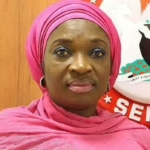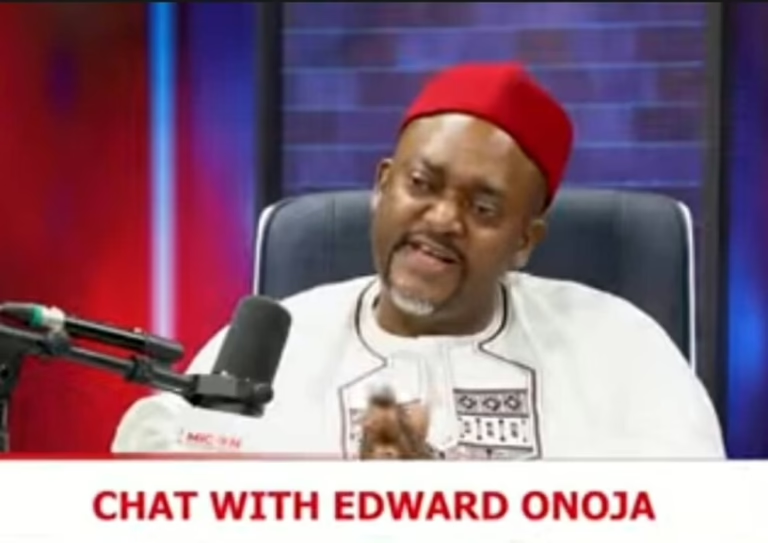Chief Edward David Onoja, popularly known as CEDO and former deputy governor of Kogi State, has criticized the decision by the then Governor Yahaya Bello administration to bar PDP senatorial candidate Mrs. Natasha Akpoti-Uduaghan from voting in the 2023 general elections, labeling it a significant political misstep.
During an appearance on the MIC On Podcast aired Saturday night, Onoja explained that this tactic ultimately backfired, inadvertently increasing Natasha’s support and sympathy among voters in Kogi Central.
It is recalled that on the day of the 2023 National Assembly elections, government-owned heavy machinery was deployed to Natasha Akpoti’s residence in Kogi Central. The equipment was used to dig trenches, effectively blocking her access to her designated polling station.
Onoja, who served as deputy governor under Bello, condemned this approach as counterproductive and lacking strategic foresight.
“Looking at Kogi Central, where local leaders hold sway, such actions don’t constitute real politics. Instead, they only elevate the person’s popularity and endear them to the electorate. This was a flawed tactic that generated sympathy rather than support, as the election results confirmed,” he remarked.
Addressing accusations linking him to the electoral violence that marred Bello’s administration, Onoja firmly rejected such claims, emphasizing that his political method was grounded in dialogue and trust-building.
“Our approach was never about intimidation. We relied on reasoned arguments and persuasion to win people over. On Election Day, voters supported us because they believed in our vision. In my home area of Olamaboro, where I had oversight, the elections were peaceful and orderly,” he stated.
When asked why he did not intervene to prevent the antagonism against Natasha Akpoti, Onoja said he was not informed of the incident at the time.
“Had I known, I would have opposed it outright,” he affirmed.
Regarding reports that the United States had raised concerns about irregularities in past Kogi elections, Onoja clarified that his name was never implicated.
“My name has never been associated with such allegations. My strategy has always been to engage and convince voters to support us willingly. Meanwhile, others might have employed different tactics to secure votes, but in my jurisdiction, coercion was never part of the equation,” he explained.
The former deputy governor reiterated that his political philosophy centered on persuasion rather than force, drawing a clear distinction between his methods and those used elsewhere in the state.

















